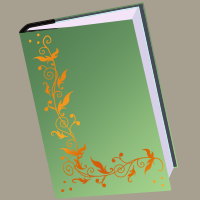Aug 25, 2023
Alongside its adorable atmosphere, this chapter brilliantly illustrates the flowering of the seed planted in the previous chapter or more generally the " choice's thematic"
It begins with the choice to change his perception of Theresia's home. Previously, our Agreste had a rather pejorative view of it, or at least chose to interpret elements as such. For example, the silence, its impersonal side, which made it seem less like a real home. In retrospect, I think this meant that he wasn't really "at ease" in Theresia's world -home-, because of the doubts he was struggling with at the time and the choice he made to personify them in the apartment. In other words, the choice of description reflected his state of mind.
From now on, he chooses a more detached vision, a "dont mind" logic : he relativizes. He could very well have chosen to interpret the mess as something really negative. But he sees it simply as a clash of spirits, and puts himself in Theresia's pov to say that it is not a big deal.
The spider's web metaphor then sums up the change in his perception of their relationship.
- At the beginning of his ascension/when he met Theresia he "perceived" it as a trap where his heart -the tiny bug - was trapped in the spider's web of his feelings/regrets/guilt. It was a trap where he wanted to escape
- Now, by choosing to change his perspective, this "trap" becomes a bed of silk where the spider is simply the beautiful Theresia who, with her love and actions, "imprisons" him in her cocoon. It's a trap he now wants to stay in.
Another interesting thing to note is the description.
So, I don't know if it's just me over-interpreting your choice to not describe with precision an environment you've described in the past to avoid repetition, but I really have this impression that Agreste is much less absorbed by the description of his environment => he no longer rambles/has chosen not to ramble. Since its a feeling, idk what words to put on it so Ill just share this "few" thoughts :
- it could be link to the fog that lifts in his mind when he's with Theresia and the fact that he's focused on her and on no one else/ on the present moment => he's no longer lost in a cloud of thoughts
- refers to the fact that when we're disconnected from the present moment, we often tend to attach particular importance to our environment, to its details => we're spectators of our own lives (observatory reference) rather than actors, as it were. So here, Agreste's focus on his feelings/on the details of Theresia's clothes means he's an actor in her life.
- " I had no poetic ramblings to speak of"/ "I couldn't help but describe its wonder in my own mind"
Then comes the moment when he dresses Theresia, which, beyond being an "intimate" moment, underlines :
- trait physiques en commun ; hair color and the twinning emotions they feel
-" the material link between them": Agreste's hidden garter for Theresia and a ribbon on Agreste's wrist
Then comes the encounter with Kitsch
First of all, there's a bit of a parallel with Lihal and her army of servants, although the objectives are different here: to welcome "warmly" Agreste and Theresia.
But the most important thing is the clash of spirits between Agreste's spirit and the spirit of the Baron of Lilac this encounter brings
- Agreste: he doesn't even know which mask he's wearing, and to tell the truth, that's not what's "tormenting" him most. Indeed, his priority is to know whether he should keep these two "entities" separate or not, not because their objectives are dissonant - a slight nuance compared to the beginning - but simply with regard to Theresia, because he doesn't want to hurt her. This brings a new nuance to the theme of choice, which is their weight or, more simply, their consequence on others (in a way, this is a direct application of the awareness he had of his suicide in his previous life).
- Theresia: for her, Agreste is Agreste
- Kistch: for him, Agreste is the Baron of lilac. So I think the fact that he called Agreste that in Theresia's presence is really a sign of inattention. It was his choice to perceive him that way, as he explained at Lihal. On a more general note, it makes me think that, in reality, no matter what masks we present to others, in the end it's they who will choose to see us with one mask rather than another, or without one.
But now, with this declaration, the masks have come off for Agreste: Theresia now knows his "true" identity. All that remains now is to find out which mask she will choose to see Agreste as, or whether lf she will simply see him now as a whole.
Personally, I don't think the "sudden chock gaze" in her eyes was anything to signify aversion or hurt - if Agreste perceived it that way, it's surely because he was already a little "apprehensive" - On the contrary, this revelation is more a way for her to put into words, to explain the feeling she's been holding for a long time in her heart, but also perhaps the unwavering trust she placed in Agreste. From her body language, she looks more relieved than upset.
In the end, I don't think she minded it too much, if at all.
Side note 1: the mess in Theresia's apartment somehow brings it to life
Side note 2 : In each other eyes, Agreste and Theresia are a beauty that never fade. Agreste as an eternal blooming flower/ Theresia as an endless perfection
- also Theresia's compliment: I think it's one of the first real ones she's ever told him
Side note 3: again, it was well thought out to symbolize Theresia's trust in Agreste by using "Azurite", the stone of confidence, to describe the color of her eyes,
Side note 4: I think this revelation was necessary for Agreste to finally be as a whole to finalize his ascent
Side note 5 : good morning ^^
![]()



